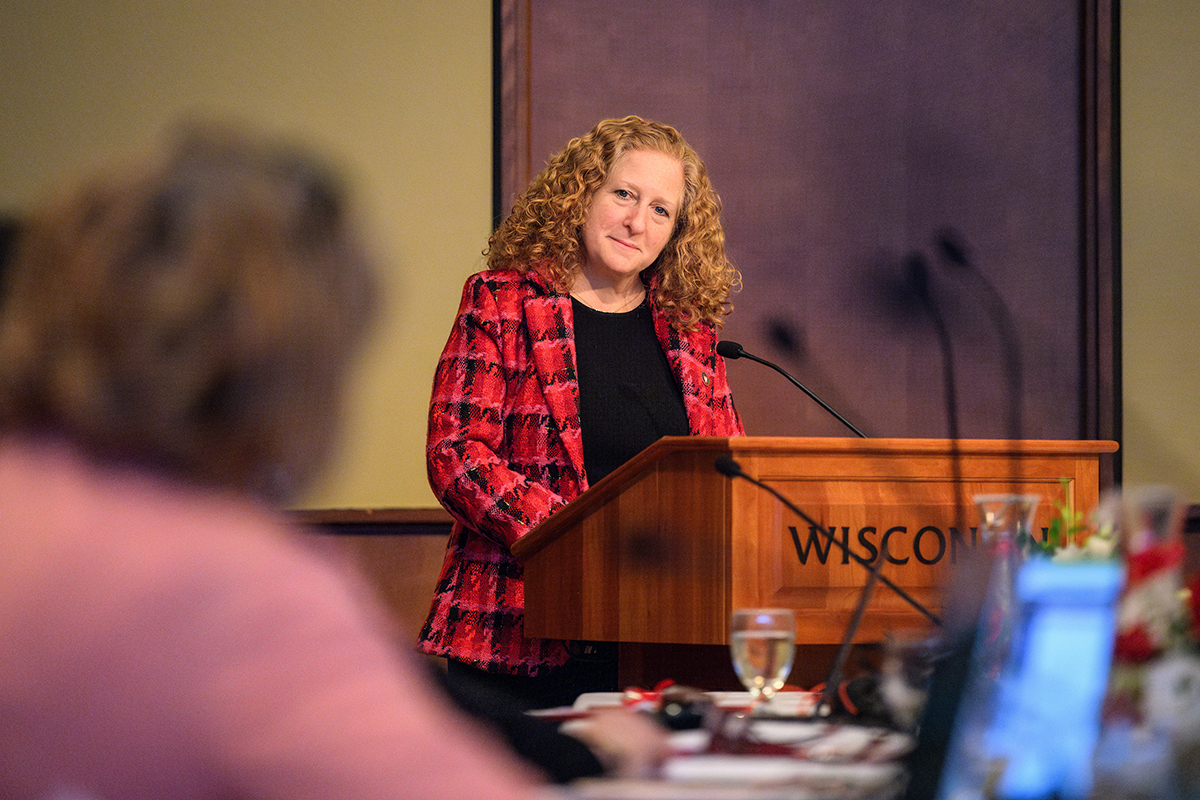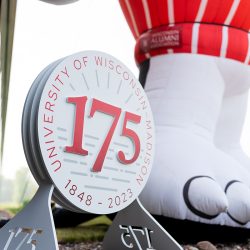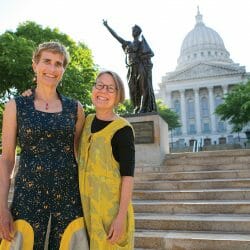A New Approach to Student Success
UW–Madison’s organizational changes aim to boost support for all undergraduates.

Mnookin: “Creating opportunities for respectful dialogue across our differences of background and beliefs, and building a shared appreciation for our pluralistic society, are our imperative.” Althea Dotzour
In July, Chancellor Jennifer L. Mnookin announced a series of administrative changes to improve how UW–Madison supports all undergraduate students through centralized programs and resources.
Last fall, Mnookin asked former provost Charles Isbell to lead a comprehensive review of the undergraduate experience and provide recommendations that would bolster retention and graduation rates. The resulting working group suggested enhancing support for students with financial need and first-generation students in particular; developing mechanisms for providing data-driven student support across the undergraduate population; and streamlining campuswide assistance to help students more easily navigate available resources.
Accepting these recommendations, Mnookin has directed campus to reorganize student assistance along three functional lines. Efforts related to student well-being, involvement, and belonging will be centralized within Student Affairs. Academic support resources will be housed within the Division for Teaching and Learning. And initiatives around financial support will be run by the Office of Student Financial Aid.
In addition, a new office focused on serving first-generation students and students with financial need will open within Student Affairs during the upcoming academic year. Support services for both groups of students were previously dispersed across multiple units on campus.
As a result of this consolidation, the university is sunsetting the Division of Diversity, Equity & Educational Achievement (DDEEA) as a freestanding unit. DDEEA’s portfolio — which includes scholarship-linked student assistance, employee support, and institutional data collection — will be relocated by function to the Division of Teaching and Learning, the Office of Human Resources, and the Data, Academic Planning & Institutional Research unit.
“I believe these changes will allow us to serve many more students with an even greater array of resources,” Mnookin said.
She noted that the university will continue to support the scholarships and programs formerly administered by DDEEA, including the PEOPLE, Posse, and First Wave cohorts. The same is true for campus’s student cultural centers, residential learning communities, and events that promote cross-cultural exchange and learning.
“Diversity of all kinds, including both diversity of viewpoint and diversity of identity and background, remains a core value of our university,” Mnookin said. “We must create the conditions here, including through programs and support services, that allow all of our students, faculty, and staff to flourish and to reach their full potential.
“Fostering cross-cultural competency among our students will prepare them to thrive in our complex world. Creating opportunities for respectful dialogue across our differences of background and beliefs, and building a shared appreciation for our pluralistic society, are our imperative.”
Published in the Fall 2025 issue



Comments
No comments posted yet.